Written by Alex Candage
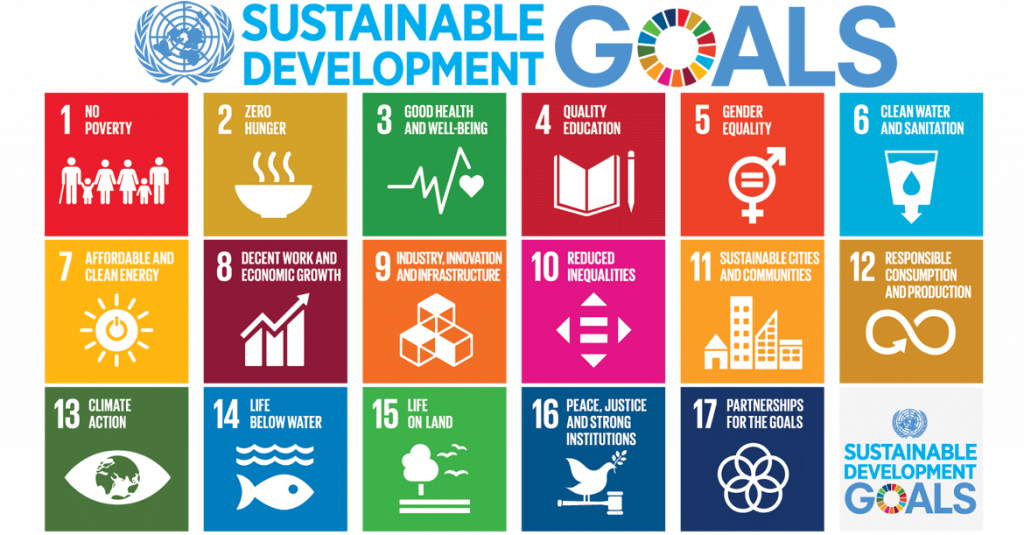
Two Rollins administrators accompanied eleven other Central Florida officials to last week’s United Nations (UN) Climate Action Summit in New York City, building relationships for future student attendees.
This was the first time a cohort from Central Florida was invited, along with leaders from dozens of countries, to the summit, which occurs every four years to discuss global solutions to climate change. The average age of the Central Florida cohort was about 30 years old, said Micki Meyer, Lord family assistant vice president for student and community.
Meyer cited Greta Thornberg’s speech as one of the highlights of the conference, which quickly went viral. Thornberg, a Swedish sixteen-year-old climate change advocate, said, “We are in the beginning of a mass extinction and all you can talk about is money and fairy tales of eternal economic growth—how dare you!”
“The leadership of the future of this movement is young people,” Meyer said.
Rollins was represented at the summit by Meyer and Dr. Susan Singer, provost and vice president of Academic Affairs, and Micki Meyer, Lord family assistant vice president for Student Affairs and community.
Meyer and Singer’s main goal was to create a relationship in order for students to attend future UN assemblies. “Our greatest interest is a pathway for students to access the general assembly events [by] this time next year,” Meyer said.
The two of them, along with the rest of the Central Florida group, were invited to the summit by Clayton Louis Ferrara (‘09), executive director of IDEAS For Us, a non-profit organization. When the UN accredited IDEAS For Us as a non-governmental organization, Ferrara gained access to the UN’s assemblies and conferences, including the Climate Action Summits.
Ferrara attended the previous summit in 2015, but it was “a bummer” that he was the only person there from Orlando, he said.
He said he was determined to bring more people to the 2019 summit, so he invited Central Floridians from University of Central Florida (UCF), Rollins, non-profits, and government positions to accompany him. He gave those who were interested and available his non-profit’s passes, creating the first Central Florida cohort, with 13 people total.
Five other Central Floridians in the cohort were CEOs of major environmentalism and humanitarian organizations, such as Feeding Children Everywhere. The others included State Representative Anna Eskamani, age 29, and Chris Castro, the City of Orlando’s director of Sustainability and Resilience, age 31.
Ferrara majored in biology and environmental studies at Rollins, where he helped start IDEAS For Us. Rollins gave him the Young Alum of Significant Distinction award in 2011, and this plus his experiences with professors encouraged him to involve Rollins staff; he said, “I use my Rollins education every single day and I really, really appreciate that.”
Ferrara said that a major goal of his is “opening doors” for Rollins students to future UN general assemblies and other UN meetings year-round. He said he would pull grounds passes to provide access for students and professors, and he hopes to research how Rollins could become a part of the UN as an academic institution, as did Columbia University. Then, Rollins could obtain their own passes and access.
“Sending Rollins students and Rollins professors to the UN isn’t about just attending cool meetings. It’s about meeting the people in the room, getting their cards, exchanging emails, and then collaborating with them throughout the whole year … giving students a hands-on experience,” Ferrara said.
The Climate Action Summit brings leaders from across the world together to find ways to implement the 17 Global Goals for Sustainable Development.
These goals originated at the previous summit and include reducing poverty, hunger, and inequality (including gender inequality); action against climate change; affordable and clean energy and water; and conserving and sustainably using below- and above-water resources.
However, as of this summit, no country is on track to achieving these goals by 2050. Ferrara said, “Things are very grim. These meetings can unfortunately be quite depressing. It’s a lot of empty promises from leaders, and a lot of bad news.”
Castro agreed: “I don’t think any city, even the ones that we think of like your Portlands and your San Franciscos of the world, are still in massive deficits for different [sustainable development] goals.”
He said that though Orlando is “doing well” in climate action and clean energy, thanks to Mayor Buddy Dyer’s focus on them, “Every city in this country is really facing the challenge of affordable housing and a growing population of homelessness.”
On the other hand, Ferrara said the summit motivates leaders to continue their work for the rest of the year, “re-charging” them. Castro said, “We’ve got a lot of things to do and certainly this underscores the urgency that we need to step up.”
Orlando joined over 20 other cities from 15 countries in signing the Voluntary Local Review Declaration. Mayor Dyer signed the declaration in mid-September, shortly before the summit.
According to the International Institute for Sustainable Development, this agreement requires cities to work toward and annually report their progress on sustainable development goals.
Another way Orlando is moving forward is in forestry. Castro said he aims to increase Orlando’s tree coverage to 40 percent of total land area by 2040, which is considered “ultra-healthy” for cities. Currently, Orlando is over 30 percent.
Additionally, the summit inspired several new ideas for Castro, which he hopes to implement. He said one was investigating how Orlando can incorporate nature-based solutions, rather than only technological advancements, because nature is able to regulate itself. “It’s not all about technology, which I tend to focus on a lot,” he said.
Castro said another idea from the summit was inspired by Toronto: incorporating green infrastructure into the city’s storm water system to clean the water, prevent it from backing up, and make the surrounding ecosystems healthier.
“I think we need to do a better job at [these initiatives] … both in the city and hopefully regionally,” he said.
During the summit, the cohort identified the most pressing environmental issues for Central Florida:
- Transportation
- Urban sprawl
- Gentrification and homelessness
- Poverty and food insecurity
- Housing affordability
- Clean drinking water supply
- Human trafficking
- Access to healthcare
- Clean energy
“In Central Florida, one out of four people are food insecure. Forty-two percent of Central Floridians don’t have more than $400 in their savings account,” said Meyer.
Additionally, Orlando is the second-most trafficked city in America (Las Vegas being the first). Meyer said that Orlando’s high tourism rate (75 million tourists per year), theme parks, and large sporting events were breeding grounds for human traffickers.
The food desert (an area where nutritious food is extremely limited and unaffordable) in Apopka and the shortage of clean drinking water in Bithlo compound the environmental issues in Central Florida. Both towns are only a thirty-minute drive from Rollins.
Singer and Meyer agreed that they would use their summit experiences to create opportunities for Rollins students.
Singer said she would specifically use them in planning construction projects and other college initiatives, while Meyer focused on curriculum: “Our goal is to fully integrate the Sustainable Development Goals across the curriculum and co-curriculum, working alongside faculty, staff, students, and community partners to identify opportunities for partnership and progress regionally.”
At the summit, Meyer and Singer strengthened current partnerships between Floridian universities, one of which was with Jim Bacchus, distinguished professor and director of the Center for Global Economic and Environmental Opportunity at UCF. Bacchus is also a former US Congressman and former Chief Judge of the World Trade Organization.
Singer said that in order to achieve and promote sustainable development, she and Bacchus created an “informal action-oriented partnership” a little less than a year ago between Rollins, UCF, and several other colleges in Central Florida.
Singer was a biology and cognitive science professor at Carleton College for thirty years before becoming the director of the Division of Undergraduate Education at the National Science Foundation.
Meyer said, “I knew all those things about our provost, but when you travel with her and get to know her, it’s like walking around with a rockstar.” Singer replied, “In the academic circle only.”
The Climate Action Summit ran from Sept. 23-25. During that time, Meyer and Singer slept in a Pod Hotel, an eco-friendly hotel where guests sleep in rooms less than 90 square feet in total, which is smaller than an average dorm room.
Meyer and Singer presented their summit experience last Friday to “Portlando: US Cities Go Green,” an RCC class taught by Dr. Ryan Musgrave, associate professor of philosophy.
During the presentation, Meyer said, “If you can take anything away from today it’s this—action happens at the local and city level.” Both Meyer and Singer encouraged students to become leaders in Rollins’ and the surrounding community’s sustainability initiatives.

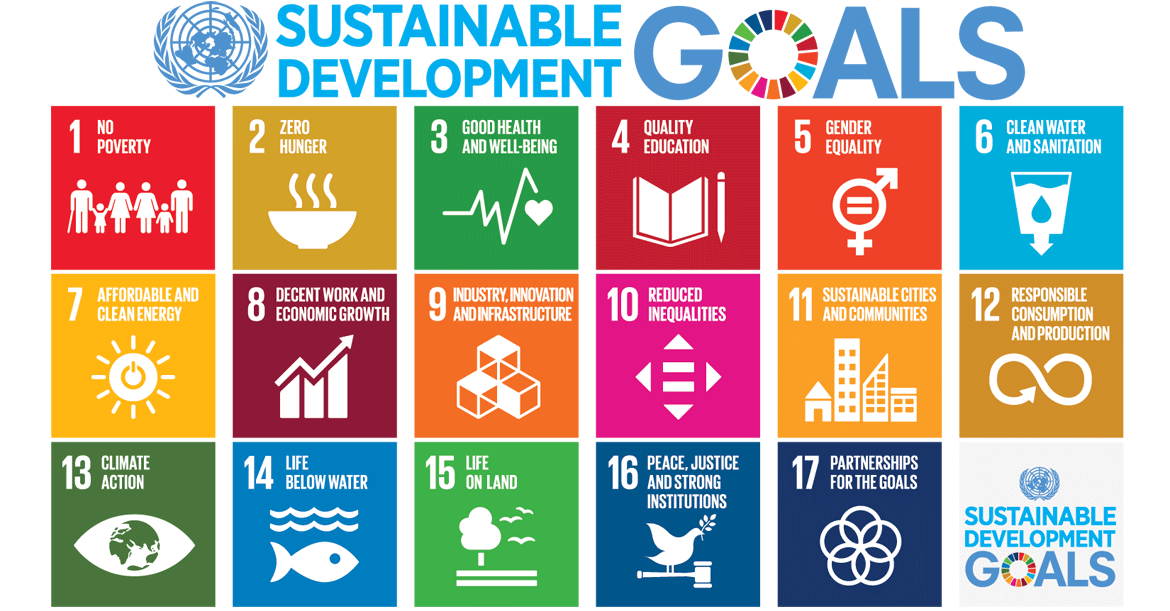




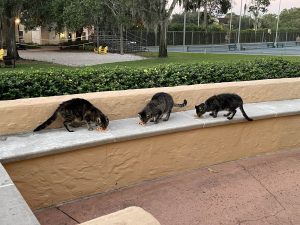

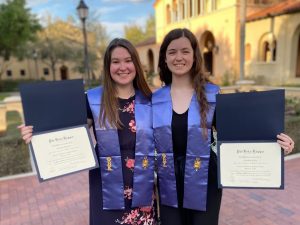

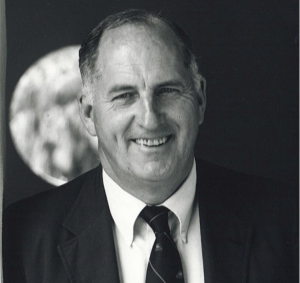
Be First to Comment